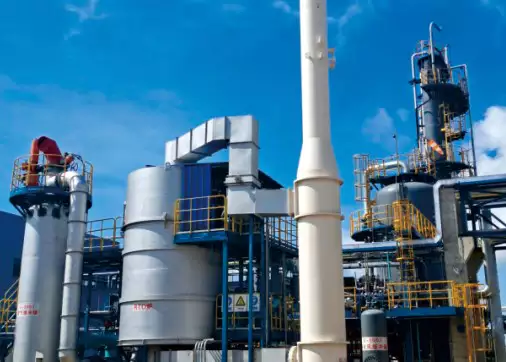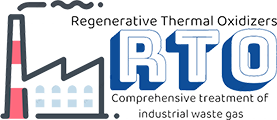What are the environmental benefits of using a regenerative thermal oxidizer?
Reduced Emissions of Volatile Organic Compounds (VOCs)
– VOCs are harmful pollutants released into the atmosphere during various industrial processes.
– Regenerative thermal oxidizers (RTOs) are designed to efficiently destroy VOCs by combusting them at high temperatures.
– This combustion process breaks down VOCs into carbon dioxide and water vapor, resulting in significantly reduced emissions.
– By using an RTO, industries can minimize their impact on air quality and contribute to a cleaner environment.
Energy Efficiency
– RTOs are known for their high energy efficiency, which is critical in reducing the environmental footprint of industrial operations.
– These systems utilize a regenerative heat exchange process, where the hot exhaust gases are used to preheat the incoming process air.
– By recovering and reusing this heat, RTOs can achieve thermal efficiencies of up to 95%.
– This energy efficiency not only helps reduce greenhouse gas emissions but also lowers the overall energy consumption of the manufacturing process.
Minimization of Hazardous Air Pollutants (HAPs)
– In addition to VOCs, industrial processes can also release hazardous air pollutants (HAPs) that pose significant risks to human health and the environment.
– RTOs are effective in destroying HAPs by subjecting them to high temperatures in the combustion chamber.
– The thorough combustion process ensures that HAPs are converted into less harmful byproducts or completely eliminated.
– By using an RTO, industries can prevent the release of dangerous pollutants and contribute to a safer working environment and surrounding communities.
Compliance with Environmental Regulations
– Operating in compliance with environmental regulations is crucial for industries to maintain their licenses and reputation.
– RTOs are recognized as a reliable pollution control technology by regulatory agencies worldwide.
– By implementing an RTO, companies can ensure their operations meet the required emission standards and demonstrate their commitment to environmental responsibility.
– This compliance not only helps protect the environment but also fosters trust and goodwill among stakeholders.
Long-Term Cost Savings
– While the primary focus of using an RTO is on environmental benefits, it also offers long-term financial advantages.
– By destroying VOCs and HAPs, RTOs prevent the need for costly end-of-pipe treatment methods or potential fines for non-compliance.
– The energy efficiency of RTOs also results in reduced fuel consumption and associated costs.
– Additionally, RTOs are known for their durability and minimal maintenance requirements, leading to long-term cost savings for industries.
Conclusie
– The use of a regenerative thermal oxidizer provides numerous environmental benefits for industries.
– From reducing emissions of VOCs and HAPs to ensuring compliance with environmental regulations, RTOs play a crucial role in mitigating the impact of industrial processes on the environment.
– Furthermore, the energy efficiency and long-term cost savings associated with RTOs make them a sustainable choice for industries aiming to minimize their environmental footprint.
– By adopting this advanced pollution control technology, industries can contribute to a cleaner, safer, and more sustainable future.
[](https://regenerative-thermal-oxidizers.com/wp-content/uploads/2024/10/0-3.RTO-for-Coating.webp)
Bedrijfsintroductie
We are a high-tech manufacturing enterprise specializing in the comprehensive treatment of volatile organic compound (VOC) emissions and carbon reduction energy-saving technologies. Our core technologies include thermal energy, combustion, sealing, and automatic control. We have the capabilities for temperature field simulation, airflow simulation modeling, ceramic heat storage material performance, molecular sieve adsorbent material selection, and VOC high-temperature incineration oxidation testing.
Our advantages lie in our RTO technology research and development center and waste gas carbon reduction engineering technology center in Xi’an, as well as our 30,000 square meter production base in Yangling. We are the leading manufacturer of RTO equipment and molecular sieve rotary wheel equipment in terms of production and sales worldwide. Our core technical team comes from the Aerospace Liquid Rocket Engine Research Institute (Aerospace Sixth Academy). We currently have more than 360 employees, including over 60 R&D technical backbone members, including 3 senior engineers with the title of research fellow, 6 senior engineers, and 54 thermodynamics PhDs.
Kernproducten
Our core products include the rotating valve regenerative thermal oxidizer (RTO) and molecular sieve adsorption concentration rotary wheel. Combined with our expertise in environmental protection and thermal energy system engineering, we can provide customers with comprehensive solutions for industrial waste gas treatment, carbon reduction, and thermal energy utilization under various operating conditions.
Certifications, Patents, and Honors

- Certificering van het Intellectueel Eigendomsbeheersysteem
- Certificering van kwaliteitsmanagementsysteem
- Certificering van milieumanagementsystemen
- Kwalificatie voor ondernemingen in de bouwsector
- Hightech-onderneming
- Patent for Rotary Valve of Regenerative Thermal Oxidizer
- Patent for Rotary Heat Storage Incineration Equipment
- Patent for Disc Molecular Sieve Rotary Wheel
Choosing the Right RTO Equipment

- Consider the VOC concentration and flow rate to determine the appropriate size and capacity of the RTO equipment.
- Evaluate the temperature requirements of the waste gas and select an RTO with suitable thermal efficiency.
- Assess the waste gas composition to ensure compatibility with the RTO’s oxidation and adsorption materials.
- Consider the space and layout requirements for installation.
- Review the equipment’s energy consumption and operating costs for long-term sustainability.
Service Process

- Consultation and Evaluation:
- Initial consultation
- On-site inspection
- Demand analysis
- Design and Proposal Development:
- Proposal design
- Simulation and modeling
- Proposal review
- Production and Manufacturing:
- Customized production
- Quality control
- Factory testing
- Installation and Commissioning:
- On-site installation
- Commissioning and operation
- Training services
- After-sales Support:
- Regular maintenance
- Technical support
- Spare parts supply
We provide a one-stop solution with a professional team that tailors RTO solutions to meet the specific needs of our customers.
Auteur: Miya
